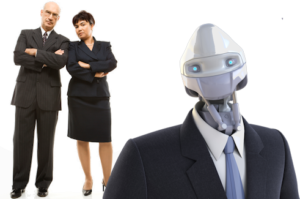In the United States, the first Monday each September is set aside to honor the contribution that working people have made to America’s progress and prosperity. There really hasn’t been much to celebrate over the past couple of decades. Although productivity has risen, wages have remained stagnant. Additionally, the unemployment rate continues to hover above 7 percent. On the bright side, it could certainly be worse; there are much higher unemployment rates in some other countries.
Labor Day was the brainchild of the labor movement. It never hurts to tell your members that you managed to secure another paid day off for them. In some ways, the labor movement is an anachronistic remnant of the industrial age. That’s not to say that the labor movement isn’t still required. There are companies, industries, and nations where worker exploitation still takes place and working conditions remain unsafe. If the labor movement is going to remain relevant in most developed countries, however, it will have to change with the times. Instead of fighting to maintain every industrial era job, unions should be on the cutting edge of determining how the labor force is going to change and then ensure that they have programs in place to assist members to adapt to changing times. Organizations that prove themselves valuable will always have a place in society.
Perhaps the biggest change that labor unions (and non-union workers as well) will have to confront is the rise of robots. Nobel laureate Paul Krugman writes, “There’s no question that in some high-profile industries, technology is displacing workers of all, or almost all, kinds.” [“Robots and Robber Barons,” New York Times, 9 December 2012] He continues:
“For example, one of the reasons some high-technology manufacturing has lately been moving back to the United States is that these days the most valuable piece of a computer, the motherboard, is basically made by robots, so cheap Asian labor is no longer a reason to produce them abroad. In a recent book, ‘Race Against the Machine,’ M.I.T.’s Erik Brynjolfsson and Andrew McAfee argue that similar stories are playing out in many fields, including services like translation and legal research. What’s striking about their examples is that many of the jobs being displaced are high-skill and high-wage; the downside of technology isn’t limited to menial workers. Still, can innovation and progress really hurt large numbers of workers, maybe even workers in general? I often encounter assertions that this can’t happen. But the truth is that it can, and serious economists have been aware of this possibility for almost two centuries. The early-19th-century economist David Ricardo is best known for the theory of comparative advantage, which makes the case for free trade; but the same 1817 book in which he presented that theory also included a chapter on how the new, capital-intensive technologies of the Industrial Revolution could actually make workers worse off, at least for a while — which modern scholarship suggests may indeed have happened for several decades.”
One of the reasons that some people are skeptical about masses of workers being displaced by technology is that the global economy can only grow if people (not robots) are buying things. If no one has work, no one is earning disposable income and economic depression is the ultimate result. Only shortsighted governments and businesses would pursue strategies that inevitably ensure economic ruin. Most businesses understand that their most important assets are their employees.
I’m an optimist. I believe that work will be found for humans, even in a highly technological age. Clearly, however, that work will involve many activities that weren’t even imagined by industrial age workers. I’m not prescient enough to predict exactly how the future will unfold; but, I am pretty certain that we will be celebrating Labor Day rather than Robot Day for the foreseeable future.




